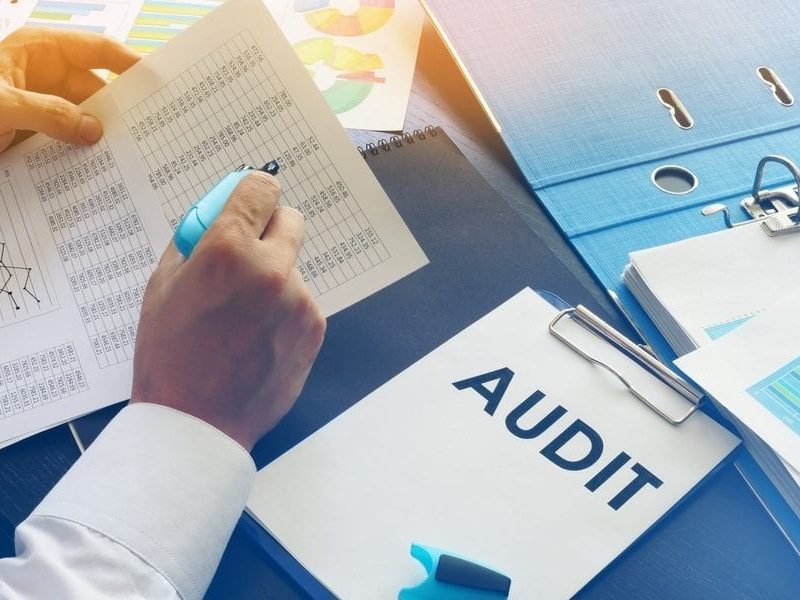
What Professionals Recommend to Prepare for a Tax Audit
Facing a tax audit can be a daunting experience, whether you are an individual taxpayer or a business owner. Proper preparation is key to ensuring that the audit process proceeds smoothly and that you comply with all necessary regulations. Tax professionals emphasize the importance of organization, accurate documentation, and a proactive approach to addressing potential issues. By following expert recommendations, taxpayers can minimize stress, prevent errors, and provide auditors with clear, reliable information. Understanding these strategies helps create a framework for a successful audit outcome.
Organizing Records and Documentation
One of the first steps that professionals recommend to prepare for a tax audit is gathering and organizing all relevant financial records. Accurate documentation is essential to substantiate income, deductions, and credits claimed on tax returns. This includes receipts, invoices, bank statements, payroll records, and prior tax filings. Properly sorted records allow for efficient review by auditors and reduce the likelihood of discrepancies or misunderstandings.
Maintaining a clear filing system, whether digital or physical, ensures that supporting documents are easily accessible. Professionals suggest categorizing records by type and date, with clear labels for each category. For businesses, this may include separating operational expenses, employee payroll, and vendor payments. For individuals, organizing personal expenses, charitable donations, and investment transactions can streamline the audit process. Comprehensive and organized records demonstrate transparency and build confidence with auditors.
Understanding Potential Red Flags
Tax professionals also advise identifying and addressing potential red flags before the audit begins. Certain items on tax returns, such as unusually high deductions, significant changes in income, or complex transactions, may attract closer scrutiny. By reviewing returns carefully, taxpayers can anticipate questions and prepare explanations or additional documentation.
Professionals recommend performing a self-assessment to check for errors or inconsistencies. For businesses, this may involve reconciling accounts and ensuring payroll, expense, and revenue records are accurate. For individuals, reviewing investment income, freelance earnings, or deductions ensures compliance with tax laws. Proactively addressing these areas can reduce the risk of disputes during the audit and provide a solid foundation for answering auditor inquiries.
Communicating Effectively with Auditors
Effective communication is another essential recommendation from tax professionals when preparing for a tax audit. Maintaining a professional, respectful, and transparent approach helps foster a positive interaction with the auditing team. Auditors are seeking accurate information to verify tax returns, and providing clear, concise responses can streamline the process.
Professionals suggest designating a point of contact if the audit involves a business. This ensures consistent communication and prevents confusion when multiple individuals are involved. For complex issues, having a tax advisor or accountant present during discussions can help clarify technical matters and provide expert guidance. Open communication, combined with organized documentation, helps auditors understand your position and reduces the likelihood of misinterpretation.
Leveraging Professional Support
Many tax professionals recommend enlisting the support of qualified accountants, tax advisors, or auditors when preparing for a tax audit. Experienced professionals provide insight into the audit process, identify potential issues, and develop strategies to address complex situations. Their expertise helps ensure compliance with regulations while minimizing stress for the taxpayer.
Professional advisors can also assist with pre-audit reviews, where they examine financial records to identify discrepancies or areas requiring clarification. They guide the preparation of supporting documentation and coach clients on effective communication with auditors. For businesses, professionals may help reconcile financial statements, review contracts, and ensure that payroll and tax filings are accurate. Utilizing professional support not only improves the audit experience but also helps protect against penalties and interest resulting from errors or omissions.
By following these expert recommendations, taxpayers can approach a tax audit with confidence. Organized records, awareness of potential red flags, clear communication, and professional guidance create a structured and compliant approach. Preparation allows taxpayers to address inquiries efficiently, reduce stress, and ensure a smoother audit process. Ultimately, taking the time to follow professional advice enhances transparency, demonstrates compliance, and supports positive audit outcomes.




